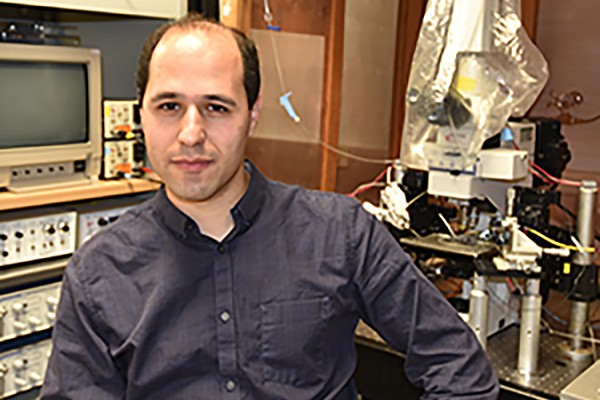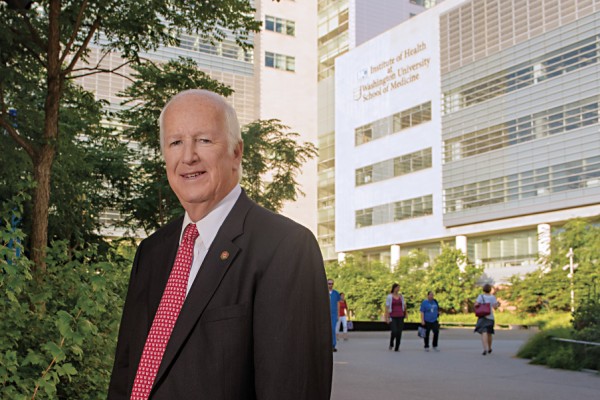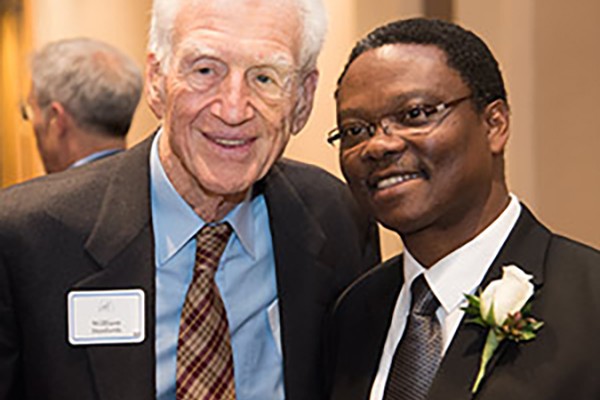School of Medicine annual art show underway
The School of Medicine’s 11th Annual Art Show is underway in the Farrell Learning and Teaching Center atrium, 520 S. Euclid Ave. Visitors may view the art through Feb. 11.
New genetic clues found in fragile X syndrome
Scientists, led in part by Washington University’s Vitaly Klyachko, PhD, have gained new insight into fragile X syndrome — the most common cause of inherited intellectual disability — by studying the case of a person without the disorder, but with two of its classic symptoms.
University continues commitment to socio-economic diversity, affordability
As the cost of higher education continues to climb steadily across the country and around the world, Washington University in St. Louis is firmly committed to being within financial reach of all highly qualified students, and is taking two important steps toward this goal.
Behind the headlines: Spring 2015 Assembly Series to tackle difficult issues
The Assembly Series, Washington University’s premier speaker series for more than 60 years, continues to bring distinguished experts, scholars and newsmakers to campus. The series — free and open to the public — explores universal concerns while it aims to promote deeper discussions across the Danforth and Medical campuses. The spring 2015 schedule begins at noon Thursday, Jan. 22, with sociologist and urban planner Xavier de Souza Briggs.
‘From Picasso to Fontana — Collecting Modern and Postwar Art in the Eisendrath Years, 1960-1968’
During the 1950s and ’60s, international abstraction played a crucial role in Cold War cultural politics. In St. Louis, Washington University emerged as one of the nation’s most important regional centers for postwar abstract art — in large part thanks to the efforts of curator William N. Eisendrath Jr. This spring, the Mildred Lane Kemper Art Museum will pay homage with “From Picasso to Fontana: Collecting Modern and Postwar Art in the Eisendrath Years, 1960-68.”
Medical school dean search committee named
A search committee has been named to identify candidates for the position of executive vice chancellor for medical affairs and dean of the School of Medicine. Chancellor Mark S. Wrighton will chair the search committee. Larry J. Shapiro, MD, announced last week he will step down from the position but will remain at the helm until his replacement is named.
Achilefu receives prestigious St. Louis Award
Samuel Achilefu, PhD, of the School of Medicine has won the St. Louis Award for 2014 for his work in creating cancer-visualizing glasses, which were used in surgeries for first time last year. He is the 87th person honored with the annual award since it was established in 1931.
DUC Chamber Music Series Jan. 20
The Karb Family Quartet — which consists of senior Jonathan Karb, his parents Margaret and Benjamin and younger brother Aaron — will launch the spring Danforth University Center Chamber Music Series Jan. 20 in Goldberg Formal Lounge.
Difficult behavior in young children may point to later problems
It’s normal for a young child to have tantrums and be otherwise disruptive, but researchers have found that if such behavior is prolonged or especially intense, the child may have conduct disorder, a childhood psychiatric problem that could be a harbinger of antisocial behavior. The research was led by Joan L. Luby, MD (shown).
Martin Luther King Jr. Commemoration honors St. Louis activist Seay
Norman R. Seay, a key figure in the struggle for desegregation in St. Louis, will receive the 2015 Rosa L. Parks Award at Washington University in St. Louis’ annual Martin Luther King Jr. Commemoration at 7 p.m. Monday, Jan. 19, in Graham Chapel. At the School of Medicine, St. Louis native Charles Stith will be the featured speaker at its commemoration at 4 p.m. Jan. 19 in the Eric P. Newman Education Center.
View More Stories



